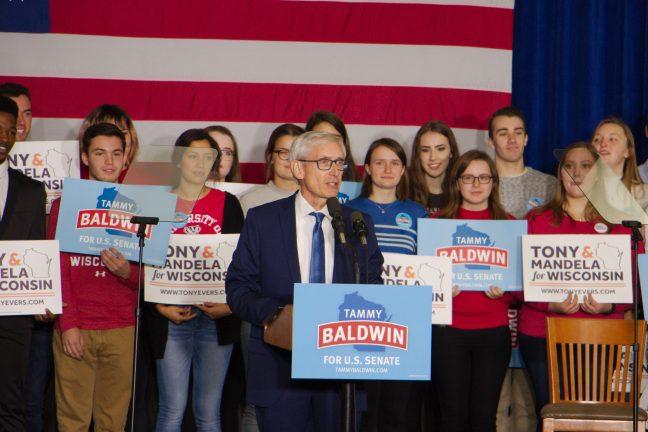Midway through February, Gov. Tony Evers announced he would be looking into issuing pardons as governor in order to help rehabilitate and restore the rights of those in the criminal justice system. This marks a distinct difference from the stance of then-Gov. Scott Walker, who believed pardons undermine the decisions made by courts and juries.
But Gov. Evers is correct to be considering issuing pardons across the system — they’re effective ways to give people a second chance in a system that’s notoriously less than lenient and is a step toward furthering rehabilitation instead of punishment.
Wisconsin is among 24 states who grants their governors the power to grant pardons for any crime other than treason, which allows them to have a direct impact on those serving time.
The term pardon is often used rather colloquially to mean any proclamation by an executive to relieve the conviction of one, which is technically wrong. A pardon by definition is the way to restore the rights of the convicted, whereas commutations are reducing the length of the sentence and a reprieve is essentially a delay or stay, where the convicted and their sentence is put on hold or suspended for a time period.
All three are popular in both gubernatorial and presidential administrations. Former state Govs. Jim Doyle, Scott McCallum and Tommy Thompson all issued pardons during their tenures as heads of the state, with Doyle issuing nearly 300 in his two terms as governor. On the presidential side, President Barack Obama and President George Bush both issued around 200 pardons in their 8 years, while Obama issued around 1,700 commutations to Bush’s 11.
All of this is to say is that there’s no reason for Evers to not pursue a policy that helps rehabilitate the lives of hundreds, if not thousands. Pardons are a vital part of the governor’s prerogative and to use them is to help out constituents across the state of Wisconsin.
It’s a common stance to say pardons a tricky business politically — and it’s easy to get trapped up that pardons should be based on leveraging political clout and capital, but that’s morally wrong. Pardons should be pursued because it’s the right thing to do for the thousands imprisoned or without rights.
First off, pardons and commutation can be a way to give those another chance. It’s not a coincidence that the phrase “the U.S. prison system is legalized slavery” is popularly thrown around. In particular, young people of color are far more likely to be imprisoned than their white counterparts, and pardons and commutations are a way to bring justice to those who are disproportionately targeted.
There should be more pardons for other drug-related felonies and non-violent-crimes simply because rehabilitation is what the justice system should strive for, not punishment. There is no reason why someone selling drugs should have to suffer their entire life because a decision they made that could have been spurred on by financial need or lack of judgment.
Naysayers believe pardons mean people are more likely to be repeat offenders — the evidence says otherwise. A study on recidivism rates among crack-cocaine traffickers found people are no more likely to recommit crimes involving the substance than those who served their full sentence.
There is no sound reason for why convicts should not be allowed to vote or retain civil rights. Florida recently passed a historic amendment that gave over 1.5 million former felons their ability to vote again. Progress is being made. A felony doesn’t need to be a life-altering and life-ruining sentence.
Pardoning non-violent and youth offenders allows for those caught up in the system to have another chance. Wisconsin has 23,000 state inmates, more than twice that of Minnesota while having around the same population. For those 23,000 inmates, it means 23,000 families and communities impacted. A pardon is a way for many in the system to start over. It’s not just good politics — it’s the right thing to do.
The criminal injustice system changes the lives of those it eats up, not always for better. There are a million ways to change and overhaul the system, but issuing pardons is a good place to start.
Adam Ramer (aramer2@wisc.edu) is a senior majoring in political science and history.


